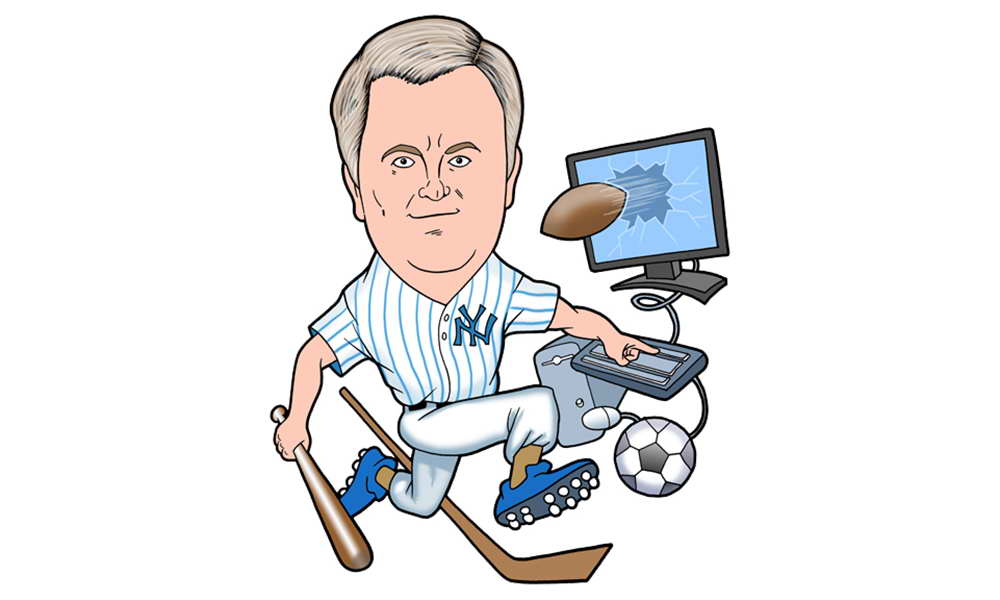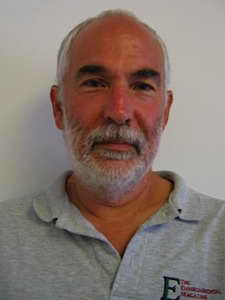Jim Motavalli has been writing on the environment for more than a decade. His work has appeared in the Mother Nature Network, E Magazine, and the New York Times. In this interview with The Marist Poll’s John Sparks, he talks about organic food, what people can do to preserve our environment, and the environmental efforts of the Obama administration. Listen to or read the interview below.
John Sparks
Jim, the Marist Poll recently conducted a national survey, and we asked the American public to think about how they live, the things they buy, specifically to help the environment. 76% told us that they do a fair amount to help the environment. Do you think that folks are really conscious and really doing that much to help out with our environment these days?
Jim Motavalli
No, I think people tend to exaggerate their environment. I think their involvement. I think people tend to think that putting out their recycling bin is like being a pretty good environmental soldier.
John Sparks
When I read things like the BP oil spill, global warming, threats to wildlife, I confess that I sometimes feel that the battle to preserve our planet is lost. Is it too late to get involved and start trying to be more eco-friendly?
Jim Motavalli
No, I mean it’s — if you were to just look at it: Is it too late to stop global warming? It definitely is. Global warming’s going to happen whether we continue to burn fossil fuels or not. If we could stop tomorrow, we’d still have a hundred years of global warming, because carbon dioxide stays in the atmosphere. But, if you’re thinking about leaving any kind of long-term legacy for the planet, the planet certainly is savable. Anything we do I think is reversible, so I don’t think … I mean a lot of things are probably irreversible, but saving human life on the planet isn’t.
John Sparks
Does living green have to be difficult? I’m just curious what some of the little things that people could do to help out might be.
Jim Motavalli
I don’t think it has to be — being like eating everything local, for example, that’s pretty difficult. People have tried to do that, and I think you end up going through so many hoops, it’s not even worth it. You have to define what is local and all that kind of thing, and having zero environmental footprint is pretty hard. I think, but really reducing your impact, I think people can do little things that have that effect.
John Sparks
What advice might you have for those that would like to be more eco-friendly but just don’t where to begin?
Jim Motavalli
Well, I think you should look up, and there’s a lot of websites that would help you do this. Understand where your main planetary impacts are. Like everybody has a carbon footprint, and certain things like the car you drive has a lot to do with how your carbon footprint is, and you can reduce that in a lot of not too difficult ways.
John Sparks
One of the things that we asked folks had to do with gardening and this business of organic food. First of all, 48% of our respondents said they personally have a garden where they grow their fruits and vegetables. Does that number seem inflated to you?
Jim Motavalli
40% say they have a garden?
John Sparks
Yeah.
Jim Motavalli
Well I’m sure that they grow some, they grow some things. Not… I don’t think 40% grow all their own vegetables. That would seem inflated. Growing some, yeah, I wouldn’t be surprised.
John Sparks
I wanted to ask you specifically about organic food, and the Department of Agriculture released a study. It said that last year sales of organic food were up to $21 billion. Back in 1997 it was just a little over 3.5 billion. We go to the supermarket, we encounter labels in the produce section which say “organic.” When you see that label that says “organic,” what exactly does that mean?
Jim Motavalli
The organic standard is a federally recognized or federally enforced standard that you cannot use unless you’re certified organic. The word “natural” doesn’t mean anything, but the word “organic” does, actually for about ten years now, have an actual legal meaning. So, it means that it met the federal organic standards, which are pretty good. So, it does mean quite a lot.
John Sparks
What are some of those standards?
Jim Motavalli
They’re very detailed and very technical, but it has…you’re not allowed to use pesticides, and you’re not allowed to use herbicides, and it has to be for a certain number of years you didn’t use any of those things.
John Sparks
One thing the organic label usually means is higher prices for those products, and I’m just curious why that is.
Jim Motavalli
Well, I think it is more expensive to farm organically. It is more expensive to do organic pest control, for instance, and generally you’re talking about smaller scale operations that don’t have the economies of scale you get with big factory farms. The cost of production is a lot higher.
John Sparks
And no chances of prices coming down then on organic foods?
Jim Motavalli
Well, prices have come down as organic food has become part of the factory food system because you have many large organic farms now that have swallowed up…I mean you can look at something like on the retail end, you’ve got Whole Foods, which has swallowed up a number of smaller chains, and you have large organic producers swallow up smaller organic producers, so the end result is larger companies which do have more economies of scale. You also have a lot of these companies now selling into supermarkets where they used to just sell into health food stores, and you have these enormous Whole Foods-type natural food supermarkets. So, there’s a lot – – the market is a lot bigger, and I think all that has resulted – – and there’s more competition, all of which has resulted in lower prices. So, prices are a lot lower than they used to be, even though it’s still a fair amount higher. You can walk into any supermarket now and buy organic milk, and it’s not that much more than regular milk.
John Sparks
The Obama administration has been pushing for legislation that would create new clean energy jobs and a more sustainable energy policy. I’m just curious your take on what passage of that kind of legislation would mean for the everyday American. We’ve got a pretty tough economy as it is right now.
Jim Motavalli
A lot of it depends on what the legislation is. It’s been through many different changes. The current form of it does not include any sort of cap and trade system, and it’s quite a bit weaker than it used to be. I was for the stronger forms of those bills that did include cap and trade, so I think…there’s lots of good things in those bills, like for example, I cover the car industry quite a bit, and there’s provisions that would create something like 15 initial deployment areas for EVs in which you would get fairly major subsidies if you bought them. That’s part of that bill. There’s lots of good provisions in it, but on the whole, it’s weaker than it could be.
John Sparks
You’ve written quite a lot about the automobile industry, and I know you contribute to the New York Times, and you have a professional relationship with Mother Nature Network. When did you become interested in environmental issues yourself?
Jim Motavalli
I’m going to have to trace that back to about 1994 when I first started writing for E/The Environmental Magazine. Before…actually before that, I had been editor of a alternative weekly paper where I did a lot of – – I did some environmental reporting anyway. As a result of that, I started getting interested in the issues, but then I got quite a bit more interested when I became editor of E Magazine, and that was like 1994.
John Sparks
I presume that Mother Nature Network, their website, might be a good place for folks to start…
Jim Motavalli
Oh definitely, yeah, it’s very – – there’s a lot of stuff on there.
John Sparks
Any new adventures or projects that you’re involved with you’d like to share with our listeners?
Jim Motavalli
I’ve started a new piece on greenwashing for America Online. I do a regular thing for AOL. I’m also the blogger for Car Talk at NPR. You know, Click and Clack, most people are familiar with them, and I have a new professional relationship with the University of Pennsylvania’s Wharton School, so I do some things with them. I’ve been doing as much…in addition to the car writing, I’ve been doing a lot of general interest environmental reporting on a number of different issues. Like for instance, I wrote a story for Knowledge at Wharton recently about carbon fraud. It’s amazing that even though I support the idea of cap and trade, there has been a fair amount of fraud in cap and trade operations in Europe.
John Sparks
Anything else you’d like to add before we call it a day?
Jim Motavalli
Well, I think people are making environmental progress. It’s kind of slow and halting, but I do think we are making a good effort. I think President Obama is the most environmentally friendly president we’ve had in a very long time. He has all kinds of obstacles in getting environmental legislation through, but I think he has pointed the EPA and the Department of the Interior in the right direction. All that has made a big difference. And, I think he’s enacted some very good initiatives that don’t necessarily require Congressional approval, so I think he’s been a very positive force in environmental action.


